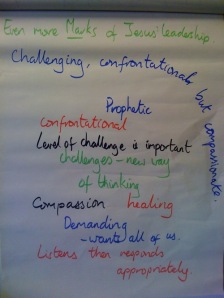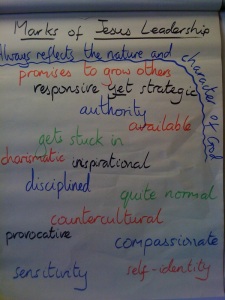[wpvideo lpWT3Dt3]
- Personalise your training
- Stretch yourself
- Work out a rhythm
- Keep close relationships
- Complete the course
- Continue to meet with mentor after the course (if they are willing) – to discuss ongoing issues.
- Is there anything you need to stop doing to give the time to get where you are going?
- Get more biblical knowledge
- Focus on God
- Practice a spiritual discipline
- Plan rather than simply just letting things happen
- Regular fellowship meeting
- Pray and push at doors
- Listen to Him for my plan
- Words of encouragement and motivation
- Be open to new ideas including ongoing discussions with mentor
- Be prepared to share ideas and thoughts.
- Write the plan down.
- Share with people who can support you.
- Review personal life statement.
- Discuss issues with mentor.
- Prayer
- Use personal life statement to develop priorities.
- Take stock of what you have.
- Find out from God which areas He wants to grow me in and be prepared to delay others for the 'Greater Yes'
- Don't stretch myself unnecessarily but trust God to give me the strength to grow.
- Be open to new opportunities – take risks.
- Seek God to help recognise areas for growth
- Seek God to smooth the 'rough' edges.
- Struggle to remain open to further change.
- Be willing to step out / try new things.
- Make time to reflect on day every evening
- Be open to requests for help from the church.
- Use journalling to remember the positive experiences and lessons learned from not-so-positive ones.
- Learn not to be afraid of vision.
- Be brave enough to practice gifts God has given you in opportunities you have.
- Share thoughts about gifts / direction your going in with others
- Pray / ask God for guidance / opportunities.
- Change and development are part of growing.
- Put things around you (at home, work, in the car, etc.) that will help you direct thoughts towards God.
- Keep a rhythm of spiritual discipline.
- If you don't manage time, then it will manage you.
- Daily Bible study
- Prayer at same time / place each day.
- Have time for myself at work – be willing to delay dealing with non urgent matters, until I have time to reflect.
- Keep a rhythm of spiritual discipline.
- Never say "I'm too busy for…" or "I don't have time for…" you always do have time but need to make decisions about how to spend it. (Editor: Gandalf himself said "All you have to decide is what to do with the time that is given to you.")
- Pray
- Have a plan to follow but be flexible to change if need to.
- Complete day off – totally away from work – be accountable to this.
- Meet deadlines rather than seeing them as flexible – don't expect too much – give yourself more time than you think you need.
- Plan in rewards.
- Increase our openness to being forgiven – it will help us in the area of forgiving others.
- Keep meeting with mentor
- Pray for and look for opportunities to serve others.
- Be yourself with people and don't be judgemental.
- Value relationships
- Show others that you care.
- Learn to make time for others.
- Seek and take opportunities to invest in others.
- Be more disciplined in prayer life
- Prepare more for mentoring sessions.
- Be intentional in all that I do.
- Plan time to spend with others regularly – put it in diary so other things don't crowd.
- Be honest with God about our good bits and bad bits.
- Remember how God has blessed me in the past and expect that in the future.
- Invite the Holy Spirit into my day EVERY day for guidance and strength.
- One day, we will all be part of the most beautiful worship service ever! For all eternity!
- Time to reflect / listen to God;
- to soak in God's presence and hear what he may be saying for the longer term.
- Be faithful in the things (little or Big) that God gives me to do as I run the race.
- We are like children going to work with our Dad for the day. He doesn't need us – chooses to involve us because he loves spending time with us. Enjoy it.







